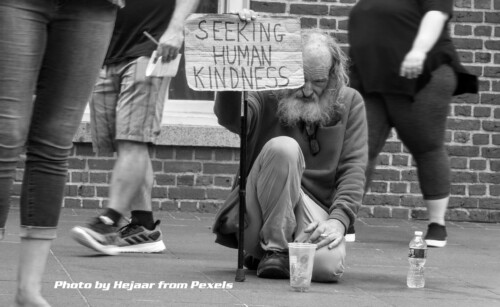Exploring the Complex Relationship Between Homelessness and Mental Health
By Editorial Team
The relationship between homelessness and mental health is complex and multifaceted. Homelessness can both contribute to mental health problems and be a consequence of pre-existing mental health issues. Understanding this intricate relationship is crucial for policymakers, healthcare providers, and social workers to develop effective interventions and support systems. Here are the key aspects of this relationship:
1. Causes of Homelessness Leading to Mental Health Issues:
- Economic Factors: Many people become homeless due to financial hardships, such as job loss, eviction, or insufficient income. The stress of homelessness can exacerbate pre-existing mental health conditions or trigger new ones.
- Trauma and Violence: Homelessness exposes individuals to traumatic experiences, including physical violence, sexual assault, and the constant threat of danger, which can lead to or worsen mental health issues such as post-traumatic stress disorder (PTSD).
- Substance Abuse: Homelessness often goes hand-in-hand with substance abuse, as individuals may turn to drugs or alcohol as a coping mechanism. Substance abuse can lead to or worsen mental health disorders.
- Lack of Access to Healthcare: Homeless individuals often have limited access to healthcare, making it challenging to receive treatment for mental health conditions or manage medication.
2. Consequences of Mental Health Issues Leading to Homelessness:
- Inadequate Coping Skills: Individuals with untreated or poorly managed mental health conditions may struggle to maintain stable employment, housing, and interpersonal relationships.
- Stigmatization and Isolation: The stigma associated with mental illness can lead to social isolation, loss of support networks, and strained family relationships, making individuals more vulnerable to homelessness.
- Lack of Awareness: Some individuals with severe mental health disorders may not be aware of their condition or may lack insight into the severity of their symptoms, which can prevent them from seeking help and ultimately lead to homelessness.
3. Prevalence and Statistics:
- Homelessness disproportionately affects people with mental health issues. Estimates suggest that around 25-30% of homeless individuals in the United States have a serious mental illness.
- Among the homeless population, common mental health disorders include depression, anxiety disorders, bipolar disorder, schizophrenia, and personality disorders.
- Substance abuse issues are often co-occurring with mental health conditions among homeless individuals.
4. Challenges in Providing Mental Health Services to the Homeless:
- Access to Services: Homeless individuals face significant barriers to accessing mental health services, including lack of transportation, limited availability of services, and bureaucratic obstacles.
- Stigma: Stigma surrounding homelessness and mental illness can deter individuals from seeking help or adhering to treatment plans.
- Involuntary Hospitalization: Balancing the rights of individuals with mental illness and the need for involuntary hospitalization for their safety is a complex ethical and legal issue.
5. Interventions and Support:
- Housing First Approach: Housing First is an evidence-based approach that prioritizes providing stable housing to homeless individuals, regardless of their mental health or substance use status. This approach recognizes that housing stability is a prerequisite for addressing mental health issues.
- Mental Health Outreach and Supportive Services: Mobile mental health teams and outreach workers can engage with homeless individuals, assess their mental health needs, and connect them with appropriate services.
- Integrated Care: Coordinated efforts between mental health agencies, housing providers, and substance abuse treatment programs can offer comprehensive support to homeless individuals with mental health and substance use issues.
- Mental Health Courts: Some jurisdictions have established specialized mental health courts to divert individuals with mental health issues away from the criminal justice system and into appropriate treatment and housing programs.
In conclusion, the relationship between homelessness and mental health is a complex and bidirectional one. Homelessness can contribute to mental health problems, while untreated mental health issues can lead to homelessness. Addressing this issue requires a multifaceted approach that combines housing stability, mental health services, substance abuse treatment, and efforts to reduce stigma and discrimination. Providing adequate support and services to homeless individuals with mental health issues is not only a humanitarian imperative but also a cost-effective way to improve the overall well-being of the community.

